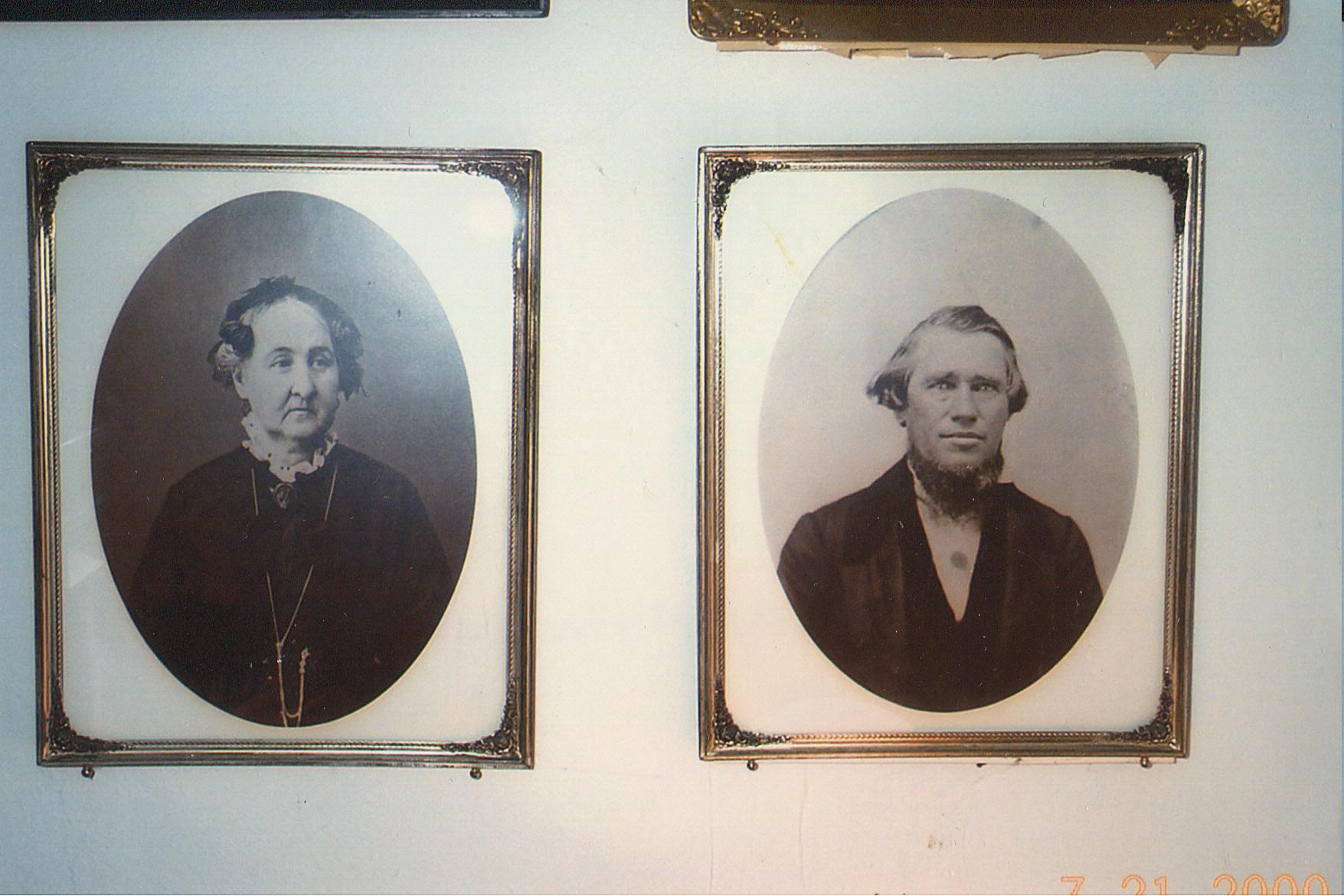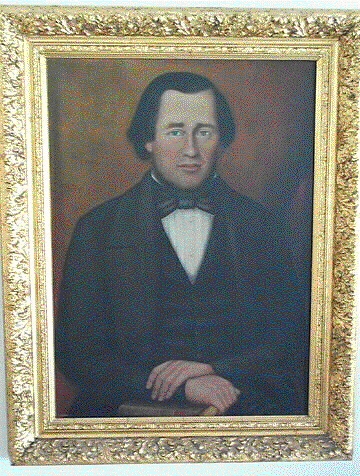Dr. Henry was born in Urbana, Champaign Co., Ohio in the year 1811. At the age of 22 years he had fitted himself for the practice of medicine which he commenced in the town of Lima, Ohio, where he remained two years. From there he went to Hardin county, where he shortly afterward became acquainted with Mrs. Isabel Zimmerman, whom he married and who survives him. He made Lima his home for five years, working energetically and with great success. In 1840 the Doctor came to Elkhart, where he has since resided uninterruptedly. Our town was then in its infancy, but with a forecast for which he was noted Dr. Henry anticipated its future importance and from time to time invested his surplus means in real estate until he had acquired a very handsome property. From his first appearance here, the town and its people were taken into his affections, and his deep interest in both never flagged until death closed his eyes. For twenty-one years he walked our streets, ever honest in expressing his opinions upon professional as well other subjects, and benevolent in his ministrations to the poor. In sunshine and tempest, without considering his own health, he visited the suffering, aiding the desponding mind by his hopeful cheerful disposition as he did the aching body by his medicines. He never catered for popularity, but adopted that system which he considered right, and conquered opposition by jest or sarcasm,
In the spring of 1861, at about the beginning of our great rebellion, the Doctor was attached with inflammatory rheumatism and for eleven and a half years he heroically suffered from a disease which few would have so long survived. During all this period, he was always pleased to see his friends and whenever they called, entertained them with cheerful conversations instead of dwelling upon his great misfortune. He took a deep interest in our national struggle and was fully posted in every event pertaining thereto, being a strong partisan of the administration. His mind remained unimpaired to the very last, and he was enabled to direct his extensive business affairs until a few weeks before his death with a clearness of detail that many a well man might envy.
Dr. Henry leaves a widow, three sons and a daughter to mourn his loss. They have the sincere sympathy of the entire community in their sad affliction, in which we add our own. May his hope be their hope, and when they have accomplished their mission here on earth may they be prepared to meet him in that better world to which his spirit has taken its flight.
Elkhart Evening Review
September 4, 1872 pg. 3
Dr. Henry was born in Urbana, Champaign Co., Ohio in the year 1811. At the age of 22 years he had fitted himself for the practice of medicine which he commenced in the town of Lima, Ohio, where he remained two years. From there he went to Hardin county, where he shortly afterward became acquainted with Mrs. Isabel Zimmerman, whom he married and who survives him. He made Lima his home for five years, working energetically and with great success. In 1840 the Doctor came to Elkhart, where he has since resided uninterruptedly. Our town was then in its infancy, but with a forecast for which he was noted Dr. Henry anticipated its future importance and from time to time invested his surplus means in real estate until he had acquired a very handsome property. From his first appearance here, the town and its people were taken into his affections, and his deep interest in both never flagged until death closed his eyes. For twenty-one years he walked our streets, ever honest in expressing his opinions upon professional as well other subjects, and benevolent in his ministrations to the poor. In sunshine and tempest, without considering his own health, he visited the suffering, aiding the desponding mind by his hopeful cheerful disposition as he did the aching body by his medicines. He never catered for popularity, but adopted that system which he considered right, and conquered opposition by jest or sarcasm,
In the spring of 1861, at about the beginning of our great rebellion, the Doctor was attached with inflammatory rheumatism and for eleven and a half years he heroically suffered from a disease which few would have so long survived. During all this period, he was always pleased to see his friends and whenever they called, entertained them with cheerful conversations instead of dwelling upon his great misfortune. He took a deep interest in our national struggle and was fully posted in every event pertaining thereto, being a strong partisan of the administration. His mind remained unimpaired to the very last, and he was enabled to direct his extensive business affairs until a few weeks before his death with a clearness of detail that many a well man might envy.
Dr. Henry leaves a widow, three sons and a daughter to mourn his loss. They have the sincere sympathy of the entire community in their sad affliction, in which we add our own. May his hope be their hope, and when they have accomplished their mission here on earth may they be prepared to meet him in that better world to which his spirit has taken its flight.
Elkhart Evening Review
September 4, 1872 pg. 3
Family Members
Advertisement
Explore more
Sponsored by Ancestry
Advertisement



















